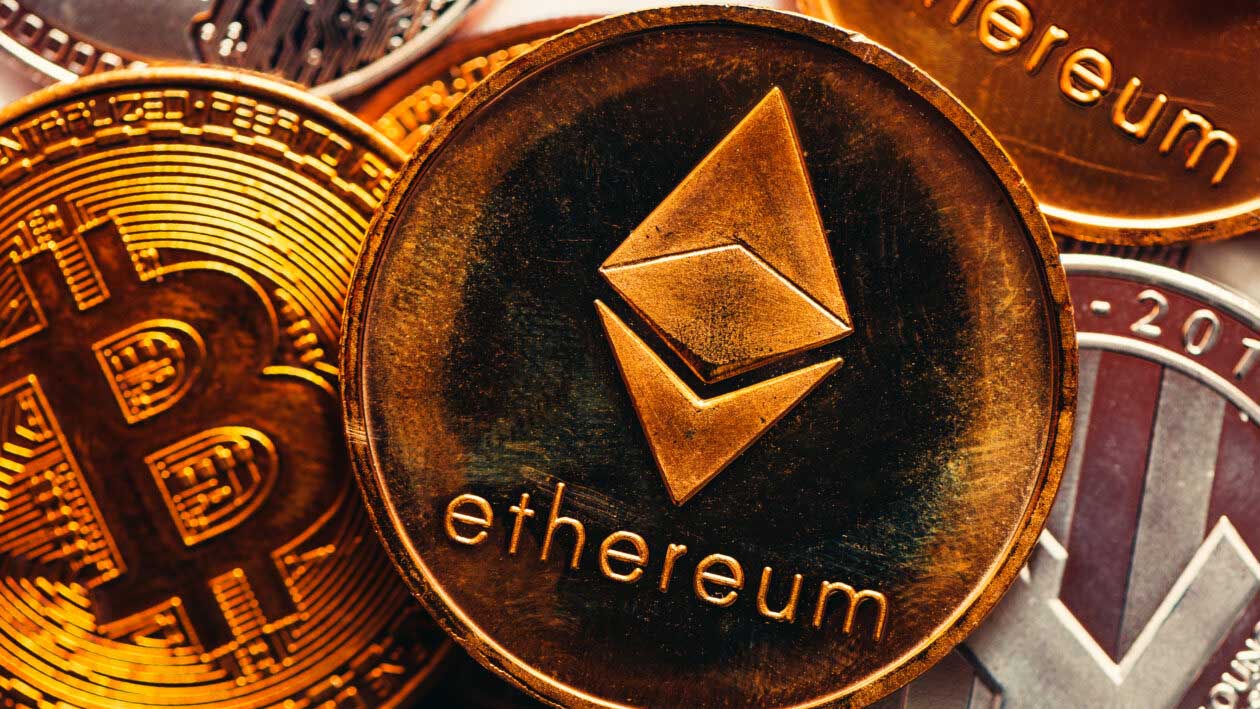Ethereum (ETH) is the second most popular cryptocurrency after Bitcoin. Founded by Vitalik Buterin and Gavin Wood in 2015, today Ethereum’s market capitalization represents approximately 20% of the $1.1 trillion global crypto market.
There are some distinct differences between Ethereum and the original crypto. Unlike Bitcoin (BTC), Ethereum is intended to be much more than just a medium of exchange or a store of value. Instead, Ethereum is a decentralized computing network built on blockchain technology.
While Ethereum shares some similarities with Bitcoin, it goes beyond being just a digital currency. Ethereum's primary feature is its ability to support smart contracts, which are self-executing contracts with the terms of the agreement directly written into code. These smart contracts automatically execute and enforce the agreed-upon terms once certain conditions are met. This concept has a wide range of applications, from finance and supply chain management to gaming and social networking.
Ethereum has its own cryptocurrency called Ether (ETH), which is used to pay for transaction fees and computational services on the network. It also serves as an incentive for individuals to contribute computing power to the network, a process known as "mining."
One of the notable upgrades to Ethereum is its transition from a proof-of-work (PoW) consensus mechanism to a proof-of-stake (PoS) mechanism as part of Ethereum 2.0. This transition aims to improve scalability, energy efficiency, and security.
In summary, Ethereum is a blockchain platform that enables the creation and execution of smart contracts and DApps, offering a versatile and decentralized ecosystem for various applications beyond traditional cryptocurrencies.
Ethereum Benefits
- Large, existing network. The benefits of Ethereum are a tried-and-true network that has been tested through years of operation and billions of value trading hands. It has a large and committed global community and the largest ecosystem in blockchain and cryptocurrency.
- Wide range of functions. Besides being used as a digital currency, Ethereum can also process other financial transactions, execute smart contracts and store data for third-party applications.
- Constant innovation. A large community of Ethereum developers is constantly looking for new ways to improve the network and develop new applications. “Because of Ethereum’s popularity, it tends to be the preferred blockchain network for new and exciting (and sometimes risky) decentralized applications,” Avital says.
- Avoids intermediaries. Ethereum’s decentralized network promises to let users leave behind third-party intermediaries, like lawyers who write and interpret contracts, banks that are intermediaries in financial transactions or third-party web hosting services.
Ethereum Disadvantages
- Rising transaction costs. Ethereum’s growing popularity has led to higher transaction costs. Ethereum transaction fees, also known as “gas,” can fluctuate and be quite costly. That’s great if you’re earning money as a miner but less so if you’re trying to use the network. Unlike Bitcoin, where the network rewards transaction verifiers, Ethereum requires those participating in the transaction to cover the fee.
- Potential for crypto inflation. While Ethereum has an annual limit of releasing 18 million Ether per year, there’s no lifetime limit on the potential number of coins. This could mean that as an investment, Ethereum might function more like dollars and may not appreciate as much as Bitcoin, which has a strict lifetime limit on the number of coins.
- Steep learning curve for developers. Ethereum can be difficult for developers to pick up as they migrate from centralized processing to decentralized networks.
How to Buy Ethereum
It’s a common misconception among people new to the Ethereum network. You don’t buy Ethereum itself—that’s the network. Instead, you buy Ether and then use it on the Ethereum network. Given Ethereum’s popularity, it’s very easy to buy Ether:
- Pick a cryptocurrency exchange. Crypto exchanges and trading platforms are used to buy and sell different cryptocurrencies. Coinbase, Binance.US and Kraken are a few of the larger exchanges. If you are just interested in purchasing the most common coins like Ether and Bitcoin, you could also use an online brokerage like Robinhood or SoFi. Be prepared to pay some amount of trading or processing fees almost universally.
- Deposit fiat money. You can deposit cash, like dollars, in your trading platform or link your bank account or debit card to fund purchases of Ether.
- Buy Ether. Once you’ve funded your account, you can use the money to purchase Ether at the current Ethereum price along with other assets. Once the coins are in your account, you could hold them, sell them or trade them for other cryptocurrencies in the future. Keep in mind you may incur taxes whenever you sell or trade cryptocurrencies.
- Use a wallet. While you could store the Ether in your trading platform’s default digital wallet, this can be a security risk. If someone hacks the exchange, they could easily steal your coins. Another option is to transfer coins you aren’t planning on selling or trading soon into another digital wallet or a cold wallet that’s not connected to the internet for safety.
